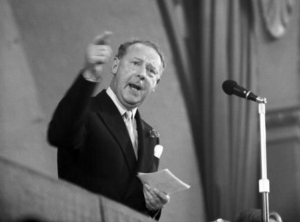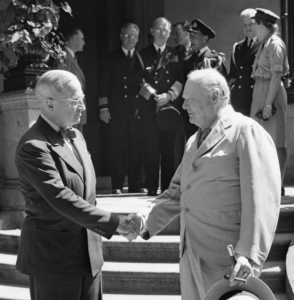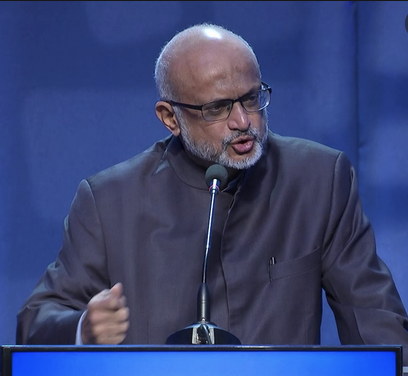In January 2011 the New Criterion journal published a seminal article by India’s leading scholar of International Relations, Professor Madhav Das Nalapat. In the article Das Napalat seeks to emphasise that the racial prejudices that dominated US and European attitudes to Empire and civiliisation in the 20th Century are not only wrong, but outdated. He argues
“the concept of “blood ties” as a civilizational—indeed as a civilizing—link was commonplace. It was carried to an extreme by the National Socialist German Workers Party during 1933–45. This was an age when the “physical” predominated, even in the creation of wealth.
Times have changed and das Nalapat aaserts the intangible has overtaken the ‘physical’, and the idea of blood kinship goes beyond genes to concept of ‘Blood of the body’ to include to encompass the abstract virtues and mindsets of the “Blood of the Mind.”
Adopting this lense the enity reveals an ‘Anglosphere’ defined
not simply a geographic or even a linguistic entity, but as an entity that encapsulates the type of thought and behavior that led to Magna Carta, to the movement for the abolition of slavery, to the Industrial Revolution, and to the war against the Nazis’ attempt to conquer continental Europe, then it is a fact that such minds exist not only within the geographical spaces visualized in a Churchillian Anglosphere, but also much farther afield. India, for instance—together with the United States and the United Kingdom—forms the core of a twenty-first-century Anglosphere.
The article contrasts the unfavourable experience of Indians in non-Anglospheric Europe in contrast to the US and the UK. In particular the experience of Indians in Germany is highlighted and Angela Merkel’s pronouncent that multikult in Germany was dead. When the paper was authored in 2011, das Nalapat believed the EU was promoting a form of European nationalism that was exclusionary. In the context of the Brexit referendum some fifteen years later, these sentiments provide insights why some British people from diverse racial backgrounds did not feel an affinity with the EU. It’s predominant norms both social and economic are different. Its barriers to trade with a wider, diverse market and its lack of non-white faces in the Cabinets and Boardrooms of the EU stand in stark contrast to the Anglospheric ‘core’ states and particularly so compared to the UK. As das Nalapat puts it,
Since the 1990s, it is the Teutonic rather than the Anglospheric strain that has been spreading across
the architecture of the European Union. A 1930s-style acceptance of ethnicity and geography as the
basis for policy can be seen in its multiplying regulations and in the European Union’s efforts at
blocking people, produce, and services from other geographic zones, even while it seeks for itself privileged access to the international marketplace.
Accessing the article
The full article is available via the academic database ‘Proquest’ or at the New Criterion website.
“India & the Anglosphere” by Madhav Das Nalapa.
“On the role the world largest democracy can play in the Anglosphere.” https://newcriterion.com/issues/2011/1/india-the-anglosphere
A report on Angela Merkel’s 2010 speech against ‘Multikult’ referred to by Professor Das Nalapat is is available on the Der Speigel International site.
“Merkel’s Rhetoric in Integration Debate is ‘Inexcusable'”
“German Chancellor Angela Merkel’s declaration that multiculturalism in Germany has “utterly failed” has raised the temperature of an already burning immigration debate. German commentators on Monday clashed on whether she was voicing a home truth or scoring cheap political points” https://www.spiegel.de/international/germany/the-world-from-berlin-merkel-s-rhetoric-in-integration-debate-is-inexcusable-a-723702.html
Der Speigel International. 18.10.2010, 14.59 Uhr




